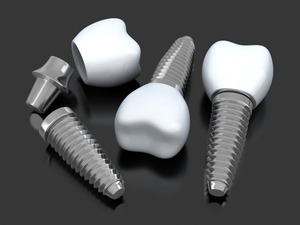
One of the things that distinguishes dental implants from other methods of tooth replacement is their stunning durability. They offer patients remarkable bite strength and realism, especially compared to dentures. This is to say nothing of their longevity, with dental implants lasting several decades with proper maintenance.
However, as strong as dental implants are, there are still some things you ought to avoid if you want to keep them around for as long as possible. Here are some bad habits you might want to drop for the sake of your dental implants.
Neglecting Oral Hygiene
Dental implants are a significant investment in one’s oral health and aesthetics, but maintaining them requires diligence and care. One crucial habit to avoid is neglecting oral hygiene. Dental implants, like natural teeth, require meticulous oral care. Skipping brushing or flossing can lead to plaque buildup around the implant site, causing peri-implantitis, a form of gum disease that can jeopardize the implant. Additionally, infrequent dental check-ups can exacerbate this problem. Regular visits to the dentist are essential for monitoring the health of implants. Avoiding these appointments allows minor issues to escalate into significant problems, potentially leading to implant failure.
Using Teeth as Tools
Another detrimental habit is using teeth as tools. Some people use their teeth to open packages or bottles, which can exert excessive force on the implants, leading to cracks, chips, or even dislodgment. Similarly, chewing on hard objects such as ice, pens, or fingernails can place undue stress on implants, causing damage to the prosthetic crown or the implant itself. It’s crucial to use teeth solely for chewing food to avoid compromising the integrity of the implants.
Unhealthy Lifestyle Choices
Unhealthy lifestyle choices can also adversely affect dental implants. Smoking, for instance, is particularly detrimental as it impairs blood flow to the gums, slowing the healing process after implant surgery and increasing the risk of infection and implant failure. Additionally, maintaining a poor diet high in sugary and acidic foods and beverages can promote bacterial growth and decay, even around implants. A balanced diet rich in vitamins and minerals supports overall oral health and aids in the maintenance of implants.
About the Author
Dr. Louis Olberding believes that patients get the most out of their dental work when it’s tailored to them in particular. He takes the time to get to know each of his patients as individuals, allowing him to create treatment plans tailored to their unique needs. Dr. Olberding received his degree from the University of Nebraska Medical Center College of Dentistry, and continues to expand his clinical knowledge with SPEAR Education.
If you have any questions about dental implants, we can be reached at our website or by phone at (402) 488-2325.
